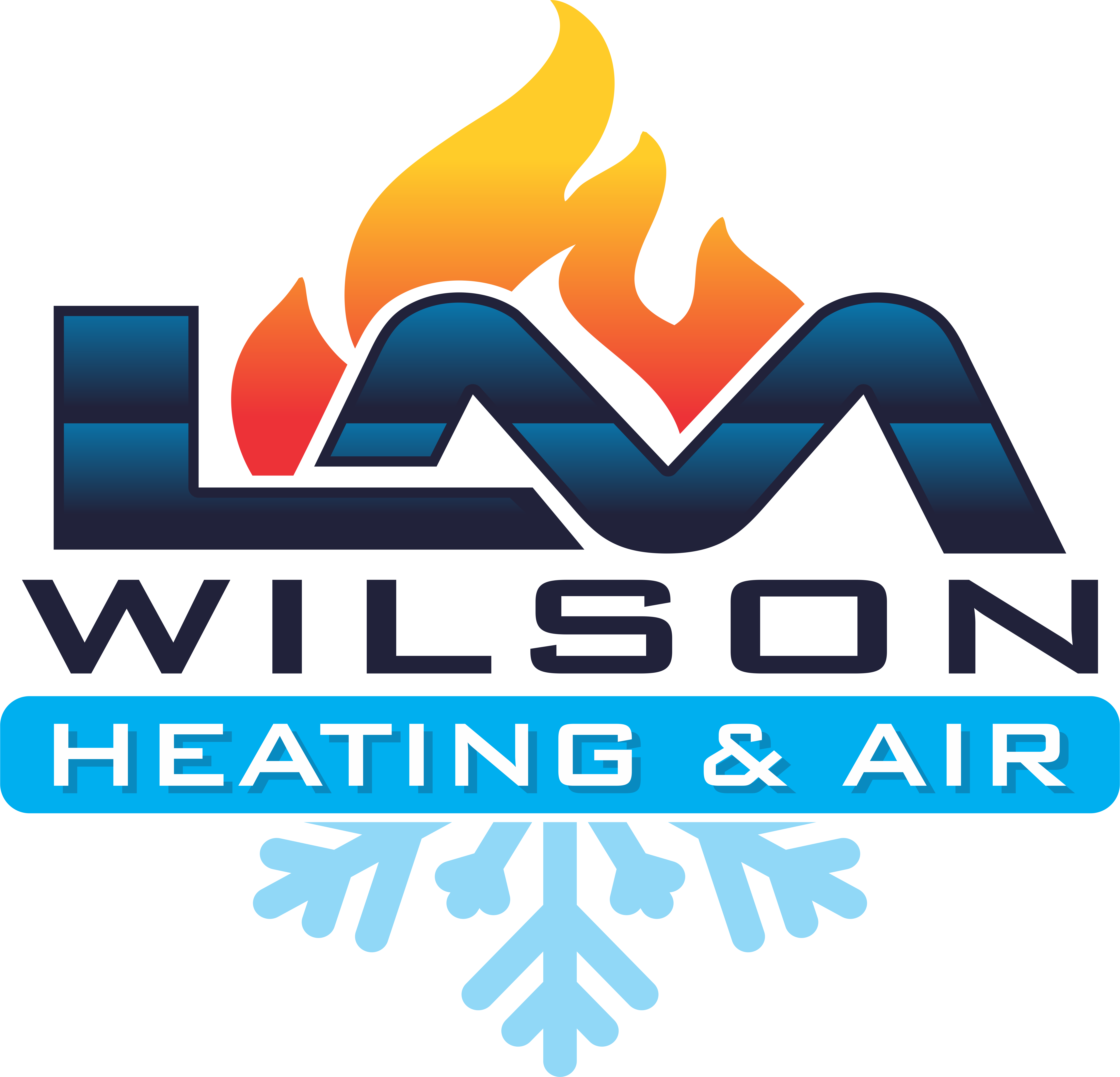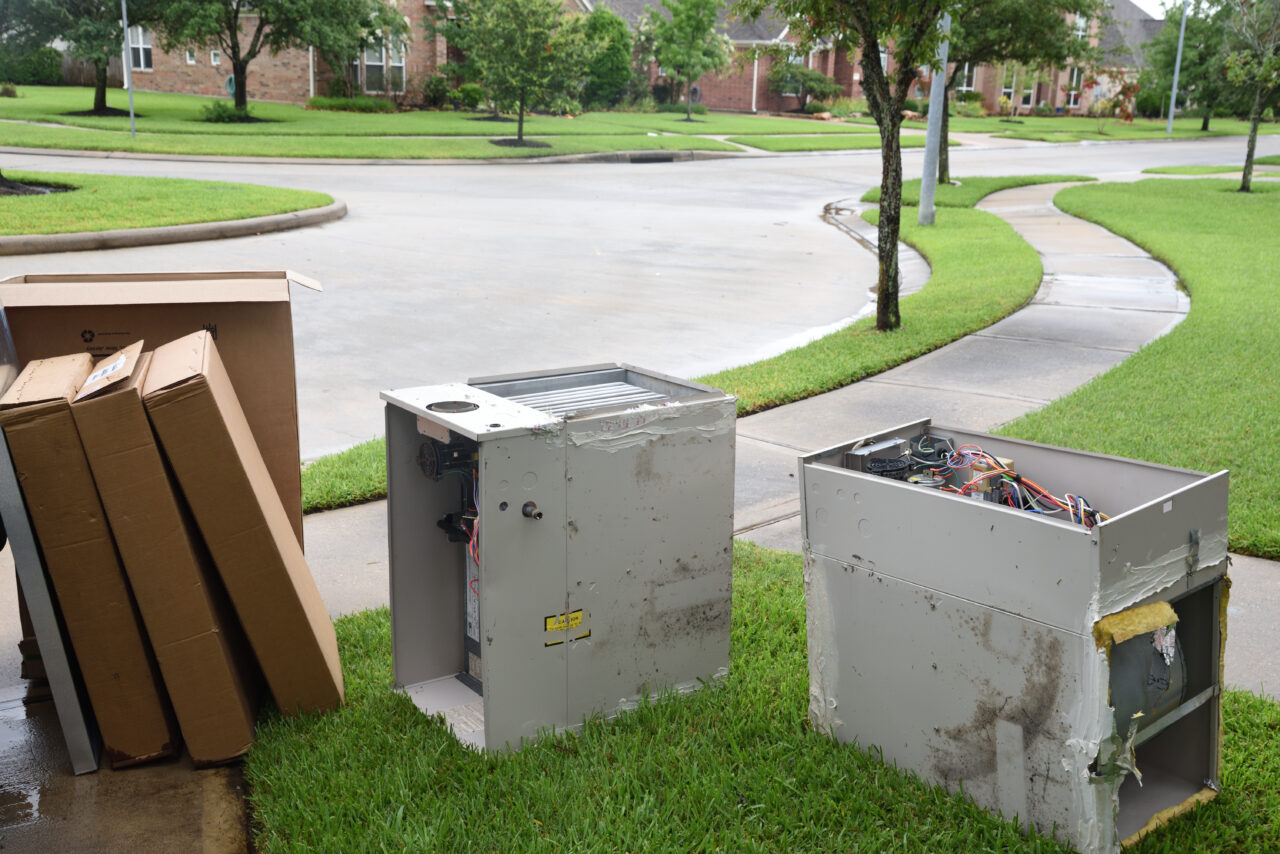Your HVAC (Heating, Ventilation, and Air Conditioning) system is a vital component of your home, ensuring comfort year-round. However, like any mechanical system, it has a finite lifespan, and there comes a point when it might be more beneficial to invest in a new HVAC system rather than continuing with repairs. In this blog post, we’ll explore common signs that indicate your HVAC system is struggling, discuss the repair vs. replace threshold, and highlight the benefits of upgrading to a new and efficient system.
Identifying Symptoms of a Failing HVAC System
- Age of the System: HVAC systems typically last around 15 to 20 years. If your system is reaching or exceeding this age, it may be prone to frequent breakdowns and reduced efficiency.
- Increasing Energy Bills: A sudden spike in energy bills without a corresponding increase in usage may indicate that your HVAC system is no longer operating efficiently. Aging systems often consume more energy to deliver the same level of comfort.
- Frequent Repairs: If you find yourself calling for HVAC repairs more often, it could be a sign that your system is on its last legs. The cost of frequent repairs may outweigh the benefits of investing in a new, reliable system.
- Inconsistent Heating or Cooling: Uneven temperatures or difficulty maintaining a comfortable climate could signal issues with your HVAC system. Aging components may struggle to distribute air evenly throughout your home.
- Strange Noises: Unusual sounds like banging, squealing, or grinding coming from your HVAC system may indicate mechanical problems. These noises can be a red flag that parts are wearing out.
- Visible Wear and Tear: Inspect your HVAC system for visible signs of wear and corrosion. Rust, cracks, or other physical damage may indicate that your system is deteriorating.
- Outdated Technology: If your HVAC system uses outdated technology, upgrading to a more modern and energy-efficient system could lead to significant cost savings and improved performance.
Repair vs. Replace Threshold
Deciding whether to repair or replace your HVAC system involves considering various factors. Here’s a guide to help you make an informed decision:
Repair Considerations:
- Cost of Repairs: Evaluate the cost of repairs compared to the age and overall condition of your HVAC system. If the repair costs are approaching or exceeding half the cost of a new system, replacement may be a more cost-effective option.
- Frequency of Repairs: If you’re facing frequent breakdowns and repairs, it might be more economical to invest in a new system with a warranty rather than continually paying for repairs.
- Energy Efficiency: Older HVAC systems tend to be less energy-efficient. If your system is struggling to maintain efficiency, investing in repairs may not yield the energy savings that a new system could provide.
Replacement Considerations:
- Age of the System: As a general rule, if your HVAC system is 10–15 years old or more, replacing it with a newer, more efficient model is often a wise decision.
- Energy Efficiency: Newer HVAC systems are designed to be more energy-efficient, which can result in lower utility bills and reduced environmental impact.
- Comfort and Technology: Upgrading to a new system allows you to benefit from the latest technologies, including smart thermostats, zoning options, and improved comfort control.
- Warranty Coverage: New HVAC systems typically come with warranties that cover parts and labor. This added protection can offer peace of mind and reduce the financial burden of unexpected repairs.
Benefits of a New HVAC System
Investing in a new HVAC system brings several advantages that go beyond reliable heating and cooling:
- Energy Efficiency: Modern HVAC systems are designed with energy efficiency in mind. Upgrading to a new system can significantly reduce your energy consumption, leading to lower utility bills.
- Improved Comfort: New systems often come with advanced features that enhance comfort, such as variable-speed technology, better humidity control, and zoning options.
- Environmental Impact: Energy-efficient HVAC systems contribute to a lower carbon footprint, helping you reduce your environmental impact and support sustainability.
- Cost Savings: While the upfront cost of a new HVAC system may seem significant, the long-term cost savings in energy bills and reduced repair expenses can make it a financially sound investment.
- Enhanced Technology: Modern HVAC systems come equipped with smart technology, allowing you to control and monitor your home’s climate remotely. This adds convenience and flexibility to your lifestyle.
- Peace of Mind: A new HVAC system often comes with a warranty, providing peace of mind and protection against unexpected repair costs.
Making the Decision
Deciding whether to repair or replace your HVAC system requires careful consideration of your specific circumstances. If your system is exhibiting multiple signs of distress, is aging, or is becoming increasingly costly to maintain, investing in a new HVAC system may be the most practical and cost-effective solution.
Consulting with a qualified HVAC professional can provide valuable insights into the condition of your current system and help you explore the options available for replacement. Remember that upgrading to a new, energy-efficient HVAC system not only ensures your comfort but also contributes to a more sustainable and environmentally friendly home. If you would like a free consultation in the Burlington, NC area, give LM Wilson a call at (336) 663-1370, or click here to learn more about our Air Conditioning Replacement and Heating Replacement services.


